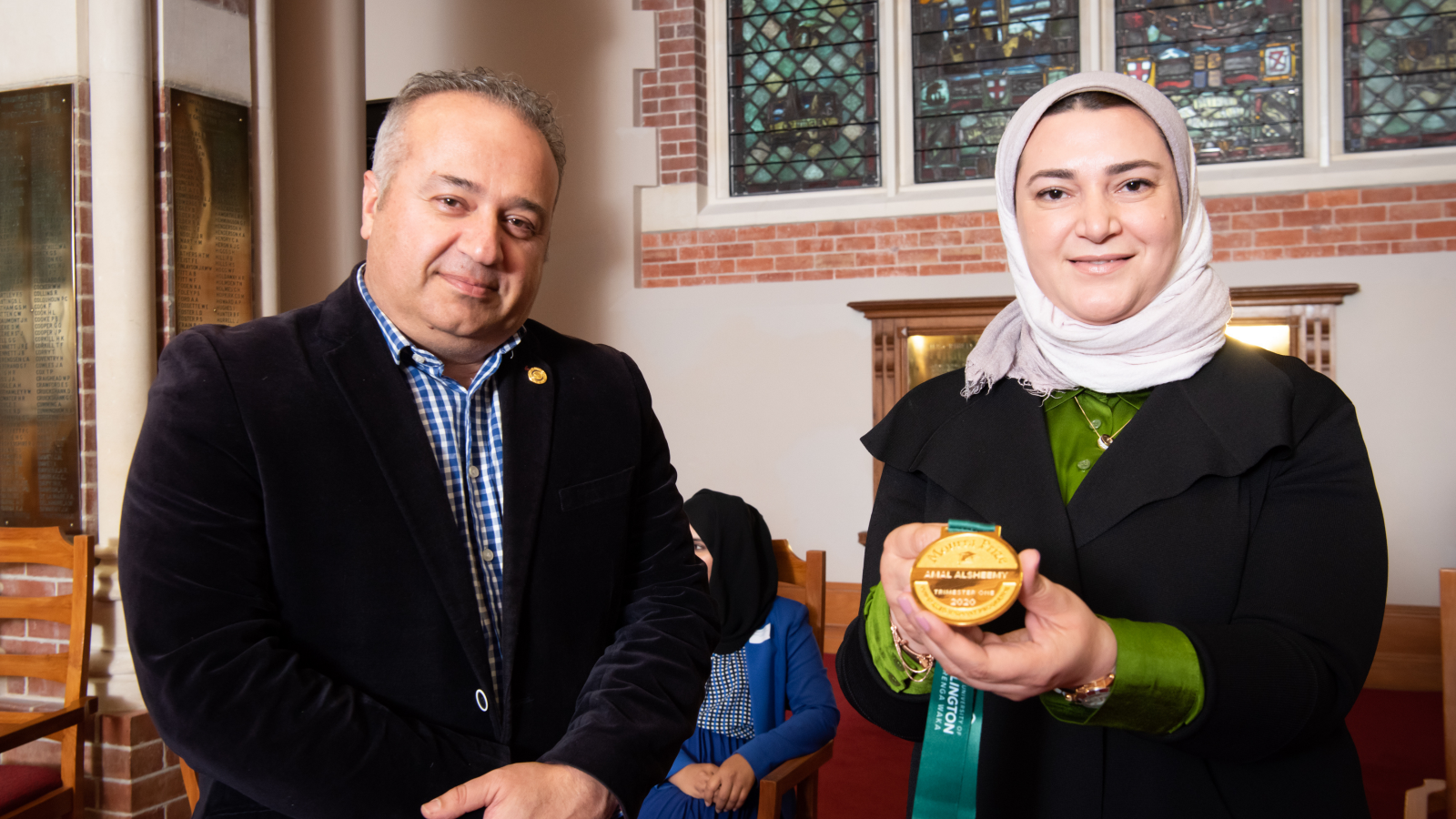
“I had been volunteering with this programme for nearly a decade through the Rotary Club of Wellington, and I always have great conversations with the skilled migrants, trying to understand what level of integration, assimilation, or adaptation was the right amount for them and how they came to that decision,” says Mr Mourra.
“I loved these discussions so much I decided I’d like to know more from each of them about where they are at on this, and what factors influence their desired level of integration—background culture? Religious culture? How do they deal with New Zealand’s secularism?”
Mr Mourra moved to New Zealand from Australia in 2003 with his Kiwi wife, and knows many people who would have benefitted from this course had it existed during the 1960s, 70s, and 80s, including his own mother.
The inaugural prize was recently awarded to Amal Alsheemy, who says the win “came right on time to lift our spirits and make us more optimistic about the future.
“The prize allowed us to reflect on our journey as migrants and realise the real value behind this journey and how to make it a meaningful one. I believe all the applicants were winners in that sense.”
“What is really exceptional about the programme is that it does not focus only on paperwork or academic perspectives,” says Amal.
“It innovatively combines an academic methodology built on real-life research data from one side, with hands-on application through internships.”
Nicky Riddiford leads the “complex, resource-rich, and people-rich course”
Course co-ordinator Nicky Riddiford helped to design the course in 2005 and has taught it for 15 years. The course is currently funded by the Ministry for Business, Innovation and Employment (MBIE).
“It is a complex, resource-rich, and people-rich course, with guest speakers visiting throughout the fulltime six-week intensive course at the University, teaching workplace communication skills, job search strategies, including job interview skills, and key aspects of the New Zealand workplace.
“When I was first involved with the programme I realised that a high need for skilled migrants is contact with professionals, so ever since it began the programme has been closely supported by members of the Rotary Club of Wellington who contribute as guest lecturers, mentors and job interview coaches.”
The teaching materials for the communication skills strand of the programme are based on the research carried out by the Language in the Workplace Project at the University.
A significant part of the programme is a six-week internship at a Wellington workplace. “The internships are arranged by The Johnson Group, a recruitment company (now part of the Alpha Group), and are are extremely valuable, as they provide the interns with New Zealand work experience, as well as a local referee,” says Nicky.
Amal, the Mourra Prize winner, is currently on contract with the Ministry for the Environment, where she did her initial six-week placement. Her previous work experience in Egypt and Qatar was in the environmental, sport, and social communications field, so this was the perfect place for her placement.
Nicky notes that around 75-80 percent of the migrants who complete the course go on to gain jobs in their professions, though not often in the organisations in which they intern.
More civil dialogue wanted around integration, assimilation, and accommodation of migrants
Mr Mourra would like to see more civil dialogue and more understanding around the themes of integration, assimilation, and accommodation of migrants.
“I hope the winning essay provokes thoughts and discussions around this topic. I don’t see it discussed in the media other than when there are controversial and contentious issues to be decided which is when the commentators on the left and right engage in condescending or provocative debates. I want to see further strong connections between migrants and Kiwis.”